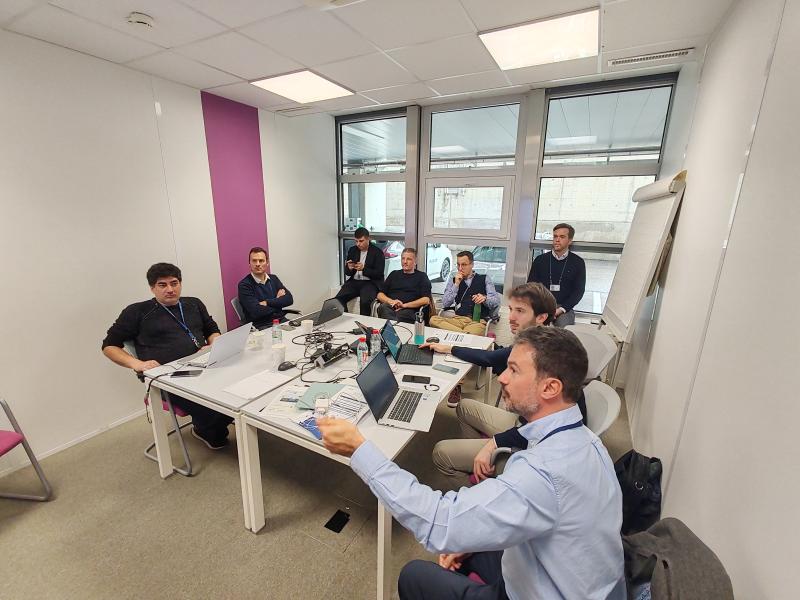Over an insightful span of three days ASTRA project members gathered in dynamic discussion over the project achievements and future development
On the 23 and 24 January, at the Skyguide facilities, technical members of ASTRA research board met with a panel of five external experts, which included flow management positions (FMPs), supervisors, and FMPs managers, to collect end-user needs and requirements for the definition of HMI requirements for the ASTRA tool. This collaborative session provided researchers with an opportunity to examine the ASTRA concept in relation to user expectations and needs. It has undergone a thorough review where End users identified approximately 27 distinct needs, with the technical team subsequently evaluating their implementation feasibility. The user needs will play a crucial role in shaping the functional requirements document (FRD).
This meeting served as a dynamic forum, sparking in-depth discussions that delved into the concept's requirements. By bringing together internal technical expertise and insights from external stakeholders, the session not only facilitated a comprehensive evaluation of the ongoing project but also fostered a collective understanding of how the ASTRA initiative aligns with the practical needs of end-users.
On 25 January, the project’s consortium held its first plenary meeting since the beginning of the project. The session provided a comprehensive overview of the project's advancements, with participants engaging in detailed discussions on the status of each work package.
As the final part of the meeting, attendees had the privilege of exploring two important areas hosted at Skyguide. First the Skytics platform, a simulation platform result of a SESAR 2020 funded project that supports the development of new ATM capabilities for the Air Traffic Controller in relation to datalink, downloaded trajectories from the aircraft, advanced Trajectory Prediction and 4D trajectory management and Conflict Detection and Resolution tools. Lastly the area control centres (ACC), in which ATCOs monitor the airspace over Switzerland and over certain areas of neighboring countries.

